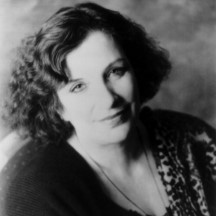Clarissa Pinkola Estés
Born: 1945
Clarissa Pinkola Estés was born on January 27, 1945 in Gary, Indiana, a small town near Lake Michigan. Her early childhood experiences in nature have deeply influenced her artistic work. As a Mestiza Latina of Native American, Mexican, and Spanish heritage, Estés grew up with the oral tradition of songs, stories, dances, and ancient healing in a family of people who worked with their hands as farmers, weavers, cabinet-makers, and shepherds. She is also Catholic and has spoken of the influence of the rhythm of Gregorian Chant and Religious services on her work. As an older child, Estés was adopted into a Hungarian refugee family of Magyar and Danau Swabian heritage. She has particularly fond memories of her foster father’s sisters’ arrival to the U.S. and of other women she met on a trip to get to know her family in Mexico. Her relationships with these women shaped her conception of her own body, and she says that “I never, ever again went on a diet, because I felt that my body was meant to be large. I also saw that I came from a long line of women who were proud and stood tall. They were totally empowered, and they also had large bodies.” In her 20s, Estés found herself divorced and a single mother of three daughters. On welfare, she remembers waking up at 5 AM every day to make money to support her family and to put herself through Loretto Heights College, a community college in Denver. Relationships with women, including her own daughters, have served as a major subject of her writing. Estés described her relationship with her daughters as a protective and nurturing one as well as a kind of sisterhood. After graduating from college, Estés went on to receive her doctorate in Ethno-Clinical Psychology from Union Institute & University and began her work as a Post-Trauma Recovery Specialist and Psychoanalyst in the 1960s at Edward Hines Jr. Veterans Hospital in Hines, Illinois. She has worked with many survivors of trauma, from veterans of World War I, World War II, and the Korean and Vietnam Wars to survivors of 9/11 and the Columbine High School shooting. She has also taught writing in prisons since the 70s. Estés is the recipient of many honors, including the Joseph Campbell Keeper of the Lore Award, the Gradiva Award from the National Association for the Advancement of Psychoanalysis, and the Las Primeras Award from the Mexican American Women's Foundation. She was also a 2006 inductee into the Colorado Women's Hall of Fame, which recognizes women "change agents" of international influence. She is the author of Women Who Run with the Wolves: Myths and Stories of the Wild Woman Archetype, a collection of 19 folk tales about female experiences. She sees her writing like a source of food—she puts it out into the world because she knows that “people who have great hunger for that food will come.”
